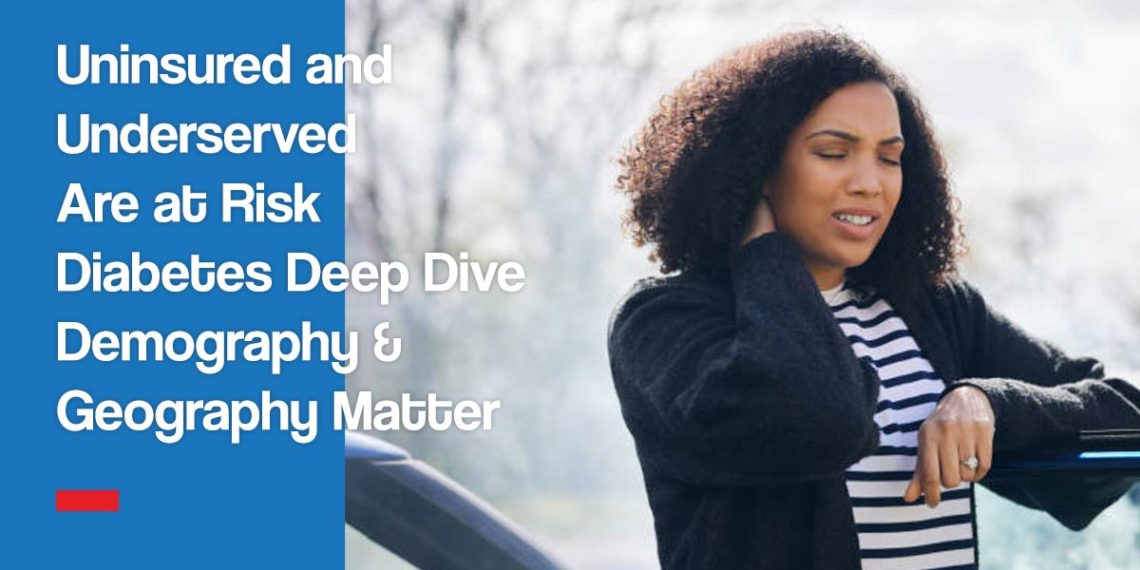There are communities where residents are underserved, and communities where the uninsured experience difficulties with obtaining medical treatment. People who have type 1 diabetes or type 2 diabetes that live in these communities are likely to be especially vulnerable to the complications of diabetes.
Risks of insufficient diabetes treatment and follow-up
One factor that is worse than having insufficient medical insurance is having no medical insurance. This is especially true when it comes to meeting the needs of someone who has diabetes. A person who has diabetes needs requires routine visits with their primary care physician, along with multiple specialists, which may include:
- Nephrologist
- Ophthalmologist
- Endocrinologist
- Podiatrist
- Dietitian or nutritionist
- Dentist
An individual who has diabetes may need to see other specialists, such as a mental health specialist.
There are other risks involved with people who have diabetes and are uninsured or that live in underserved communities. Examples of these risks include being unable to meet other medical needs such as the required frequent lab work, testing, diabetic supplies, the cost of insulin, and other expenses related to monitoring and treating diabetes.
Failing to get needed treatment often results in complications such as heart disease, kidney disease, an increased risk of ketoacidosis, infections, amputations, organ failure and death.
Diabetes is a serious health condition that poses increased risks to those who are uninsured or who live in underserved communities.



